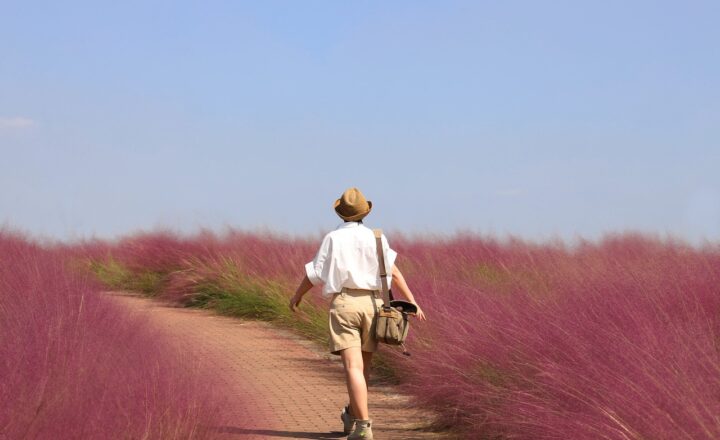How Travel Transformed in the 2020s: From Pandemic Restrictions to New Adventures
November 17, 2024

Travel has always been a powerful part of human experience, shaping cultures, economies, and personal growth. However, the 2020s marked a historical shift as the world faced unprecedented challenges, particularly due to the COVID-19 pandemic. This article will explore how the landscape of travel transformed during this turbulent decade, from stringent pandemic restrictions to the emergence of new travel adventures.
1. The Impact of COVID-19 on Global Travel
The pandemic brought global travel to a screeching halt in early 2020. Lockdowns, border closures, and travel advisories became the new norm, leading to a dramatic decline in international tourism. Airlines grounded fleets, hotels shuttered, and travelers faced uncertainty about when—or if—they could resume their adventures.
During this period, many traditional travel paradigms were disrupted. With fear of exposure to the virus, travelers were forced to reconsider how, where, and why they travel. Amid this landscape of uncertainty, a few key trends emerged:
- Staycations: With international travel out of reach, people turned to local adventures. Hotels and resorts pivoted to offer enticing packages for in-state travelers, leading to an increase in staycations and nearby explorations.
- Health and Safety Protocols: An immediate focus on health and hygiene transformed travel protocols. Airlines and hotels implemented measures such as enhanced cleaning, social distancing, and contactless check-ins to ensure traveler safety.•
- Advent of Digital Requirements: With new vaccine mandates and testing requirements introduced globally, the travel process evolved to include a technological component, from digital passes to health forms.
Highlighting the resilience and adaptability of the travel industry, a shift towards local attractions and enhanced safety protocols became central as we transitioned from pandemic restrictions.
2. The Slow Reopening and New Travel Trends
As early as mid-2021, some countries began gradually reopening borders and relaxing restrictions for vaccinated travelers. This shift opened the floodgates for a revival of travel, albeit different than the way we remembered it. Important travel trends emerged during this slow reopening phase:
- Demand for Nature-Based Travel: With a newfound appreciation for nature and the great outdoors, travelers gravitated towards natural scenery, hiking, and camping trips. National parks around the world saw an influx in visitors seeking unique outdoor experiences that adhered to social distancing rules.
- Interest in Wellness Retreats: The pandemic prompted individuals to prioritize mental health and well-being. Travelers sought retreats that offered mindfulness activities, yoga, and digital detox experiences, allowing them to unwind and recharge amidst nature.
- Flexibility and Remote Work Travel: Accelerated remote work policies made flexibility a priority. Many travelers sought out “workations,” blending professional commitments with leisure time in exotic locales, leading to an increase in long-term stays in vacation rentals and hotels.
This shift in consumer interests reflects a growing desire for meaningful, rejuvenating travel experiences focused on health, wellness, and nature appreciation.
3. Technological Innovations in Travel
The pandemic encouraged advancements in technology that have reshaped the travel landscape. As we transitioned into the mid-2020s, travelers started experiencing a tech-driven travel environment:
- Touchless Technology: Airports, hotels, and attractions increasingly adopted contactless check-in, mobile boarding passes, and digital concierge services, enhancing traveler convenience and safety while minimizing physical interaction.
- Enhanced Travel Apps: Travel applications became indispensable, allowing travelers to navigate the changing landscape. From tools assisting with health verification to those offering real-time information on travel regulations, technology simplified planning and execution of trips.
- Immersive Experiences through AR and VR: The rise of augmented reality (AR) and virtual reality (VR) provided a unique opportunity to experience destinations prior to travel. Virtual tours gained traction, allowing travelers to explore potential destinations closely while remaining safe at home.
Technological innovations made the travel experience more streamlined and responsive to the new consumer needs, with enhanced safety and convenience marking the next frontier.
4. A New Perspective on Travel Sustainability
As travel began to pick up again, a renewed focus on sustainable practices emerged among both consumers and businesses. Travelers started prioritizing sustainable options in response to the negative environmental changes exacerbated by earlier travel habits:
- Eco-Friendly Accommodations: More travelers sought lodgings and tours that adhere to sustainable practices, from eco-hotels to local organic food sources, aligning travel choices with responsible consumption.
- Carbon Offsetting Initiatives: Airlines began offering carbon offset options during the booking process, giving travelers the agency to reduce their footprint associated with their journeys. Customers can calculate and contribute towards offset programs that fund sustainable environmental projects.
- Community-Centric Travel: A shift toward local and community-based tourism resulted in travelers engaging with local cultures and businesses directly. This trend supported economic recovery and sustainable practices while giving visitors more authentic experiences.
Travelers increasingly recognized that their choices impact the environment and local communities, leading to a growth in sustainable tourism initiatives during the 2020s.
5. The Return of International Travel: New Adventures Await
As 2022 progressed, vaccines became widely available, and many countries established entry requirements based on vaccination status. With these advancements came renewed opportunities for international travel:
- Rediscovery of Global Destinations: After a two-year hiatus, travelers resumed exploring iconic landmarks and lesser-known locales around the world. Cities like Paris, Tokyo, and Rio de Janeiro buzzed with life as travelers returned to cultural experiences, festivals, and dining adventures.
- Adventurous Travel Trends: Individuals began seeking unique and adventurous travel experiences, such as multi-day hiking trips, wildlife safaris, and immersive cultural exchanges, shifting away from traditional travel norms.
- The Rise of ‘Bleisure’ Travel: The blurring lines between business and leisure travel, termed ‘bleisure,’ gained momentum. Companies adapted to accommodate employees working remotely, enabling travel that integrated relaxation alongside professional commitments.
The rebirth of international travel not only reignited wanderlust among adventurers but also allowed travelers to engage with the globe in unprecedented and meaningful ways.
Conclusion: Celebrating the Resilience of Travel
The 2020s initiated transformative changes in our approach to travel. From pandemic-induced restrictions to emerging preferences for nature, wellness, technology, and sustainability, we have witnessed a renaissance of travel that values deeper connections with our destinations.
As we move forward, it is essential to carry these lessons into the new era of travel. Let us embrace the innovations, remember the importance of responsible tourism, and keep exploring our beautiful world, fueled by the spirit of adventure and curiosity that have always defined travel. The journey continues, and new adventures await all who are ready to seize them.






